Legalized killing: Animal advocates oppose trophy hunting in South Africa
Categories: Africa | Animals | Conflict | Europe | Society
By Pictolic https://pictolic.com/article/legalized-killing-animal-advocates-oppose-trophy-hunting-in-south-africa.htmlBusinessmen from the UK earn a lot of money on bloody tours to South Africa to hunt elephants, lions and rhinos. The names of these people were published in a new book by Eduard Goncalves entitled "Exposing Trophy Hunters: Inside the Big Game Industry" ("Trophy Hunters Exposed, Inside the Big Game Industry"). It describes how men organize groups of tourists to shoot exotic animals. According to British law, they are not doing anything illegal, but animal rights activists are doing their best to stop trophy hunters.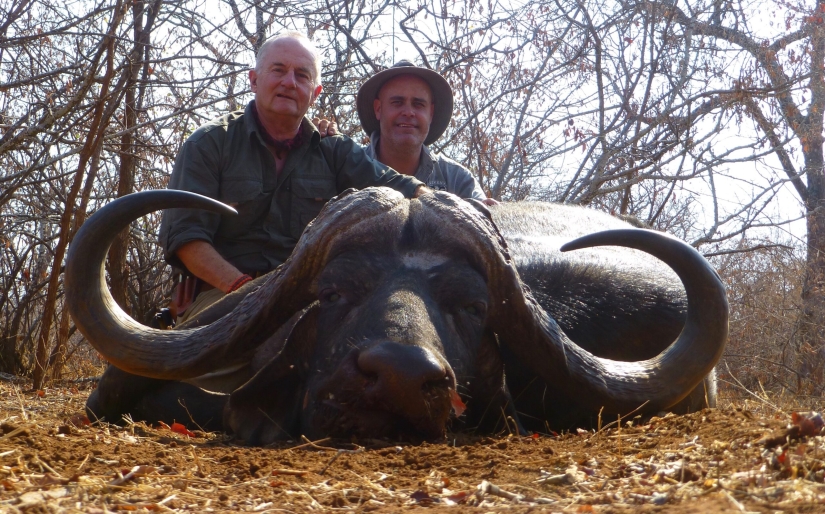 The British government is still considering whether to ban hunters from importing slaughtered animals into the country. There is no evidence that businessmen did something illegal, but in In the UK, in the last few years, there have been more and more public actions against hunting. People are outraged by the behavior of hunters who proudly pose with the bodies of dead animals on social networks.
The British government is still considering whether to ban hunters from importing slaughtered animals into the country. There is no evidence that businessmen did something illegal, but in In the UK, in the last few years, there have been more and more public actions against hunting. People are outraged by the behavior of hunters who proudly pose with the bodies of dead animals on social networks.
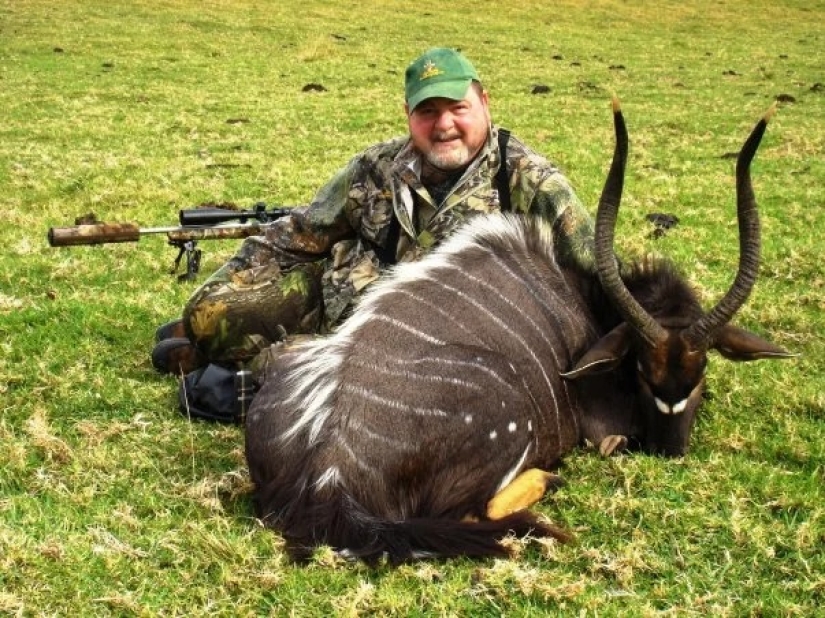 Customers pay Watt from 240 pounds (about 21,000 rubles) for the opportunity to kill monkeys to 2,800 pounds (about 245,000 rubles) for shooting larger animals. The company can arrange a hunt for the "big five of Africa" — lions, leopards, black rhinos, elephants and Cape buffaloes. Tourists can hunt wild cats with dogs.
Customers pay Watt from 240 pounds (about 21,000 rubles) for the opportunity to kill monkeys to 2,800 pounds (about 245,000 rubles) for shooting larger animals. The company can arrange a hunt for the "big five of Africa" — lions, leopards, black rhinos, elephants and Cape buffaloes. Tourists can hunt wild cats with dogs.
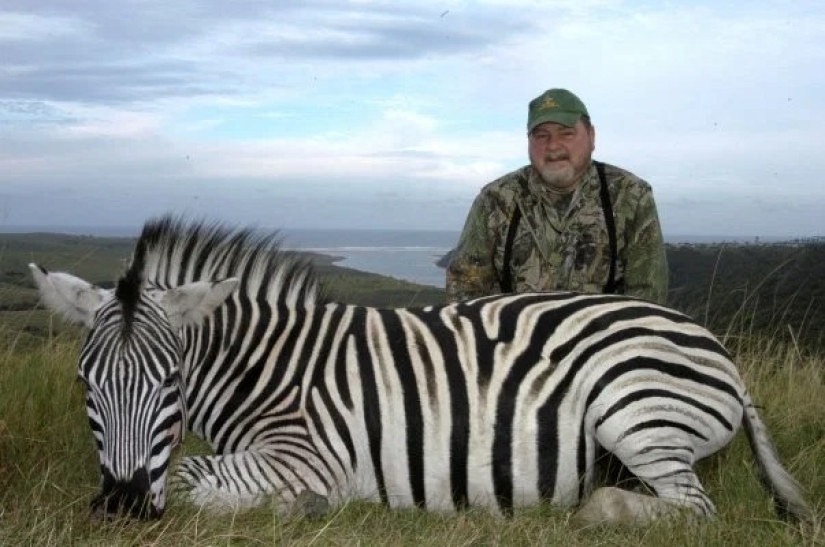 David Watt himself proudly poses with the slaughtered animals. He used to work as a manager in an oil and gas company, but decided to change the type of activity and got into the bloody business.
David Watt himself proudly poses with the slaughtered animals. He used to work as a manager in an oil and gas company, but decided to change the type of activity and got into the bloody business.
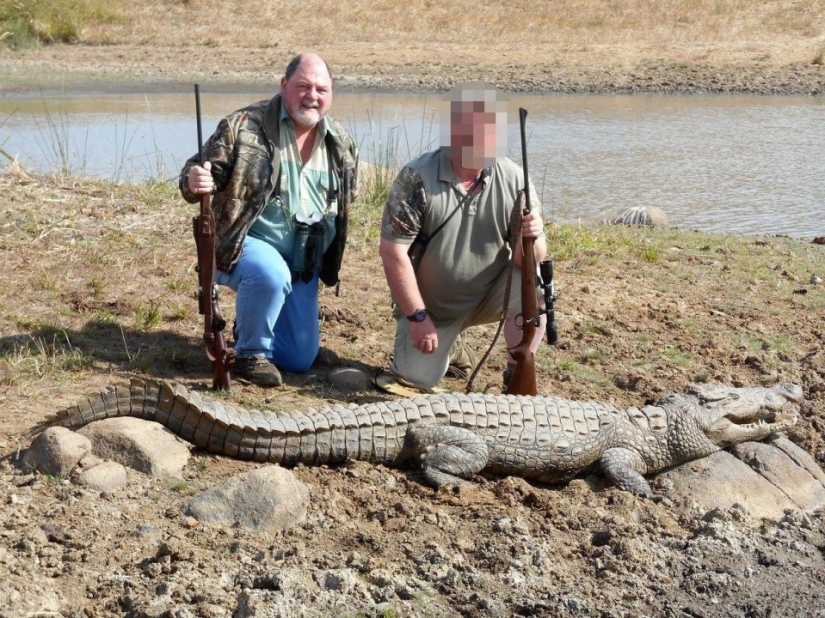 The coordinator says that clients can hunt only those animals that have been agreed upon in advance. According to him, hunters follow strict rules and do not shoot rare animals. Watt believes that hunting has a beneficial effect on the conservation of fauna, besides helping to earn the local population.
The coordinator says that clients can hunt only those animals that have been agreed upon in advance. According to him, hunters follow strict rules and do not shoot rare animals. Watt believes that hunting has a beneficial effect on the conservation of fauna, besides helping to earn the local population.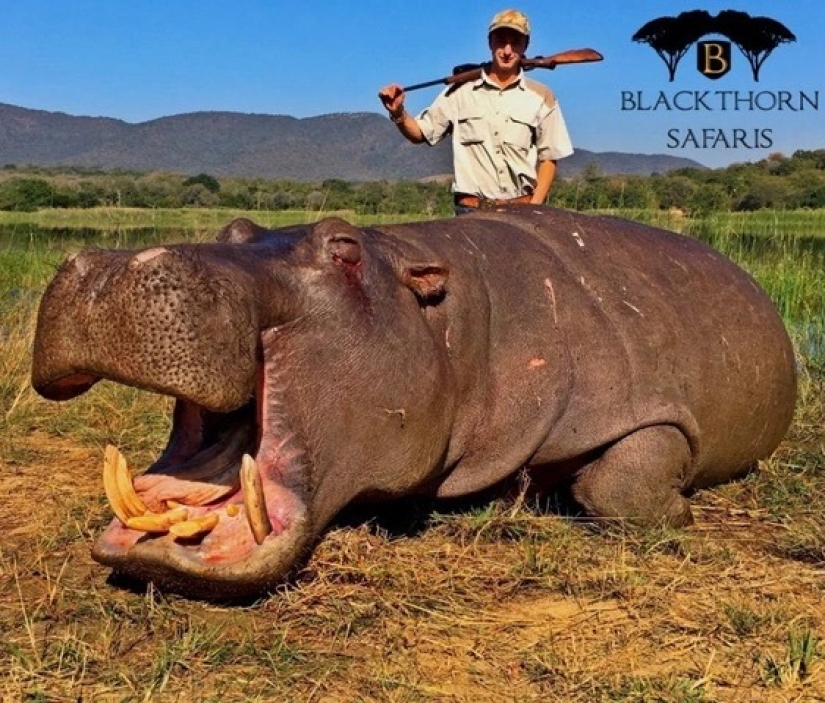 Another hunting tour organizer mentioned in the book is Alex Goss from Shropshire. The businessman runs a hunting company called Blackthorn Safari. He is also happy to pose next to dead crocodiles, hippos, buffaloes and lions.
Another hunting tour organizer mentioned in the book is Alex Goss from Shropshire. The businessman runs a hunting company called Blackthorn Safari. He is also happy to pose next to dead crocodiles, hippos, buffaloes and lions.
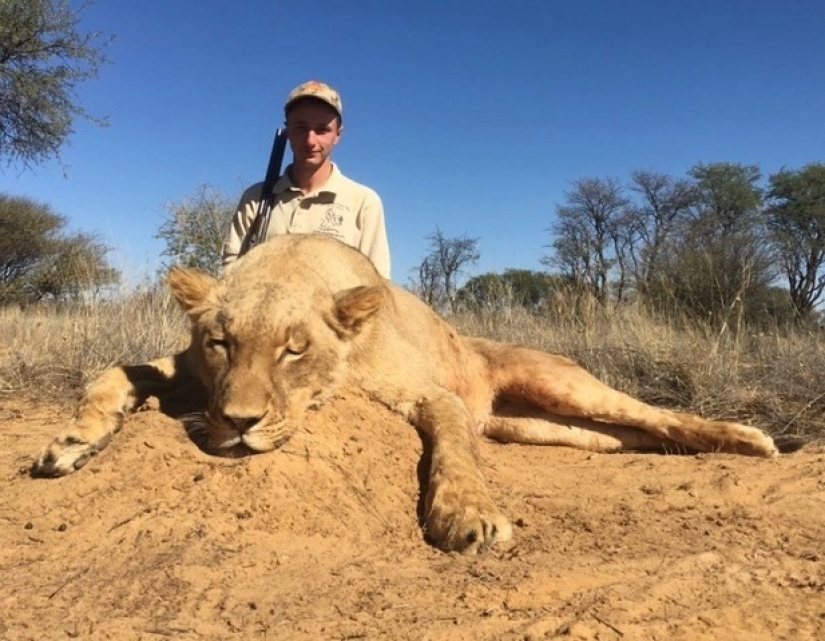 Goss claims that his clients invest in environmental protection, research and law enforcement work, thereby helping the African fauna.
Goss claims that his clients invest in environmental protection, research and law enforcement work, thereby helping the African fauna.
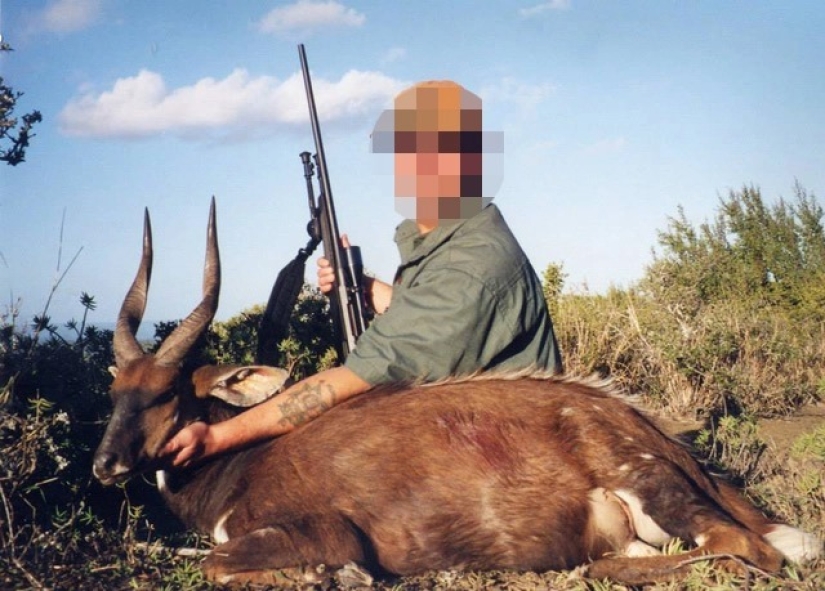 The book also names 78-year-old Paul Roberts, the head of J Roberts and Sons Gunmakers in West Sussex. Now he no longer hunts, but believes that the ban on trophy tours will only harm nature.
The book also names 78-year-old Paul Roberts, the head of J Roberts and Sons Gunmakers in West Sussex. Now he no longer hunts, but believes that the ban on trophy tours will only harm nature.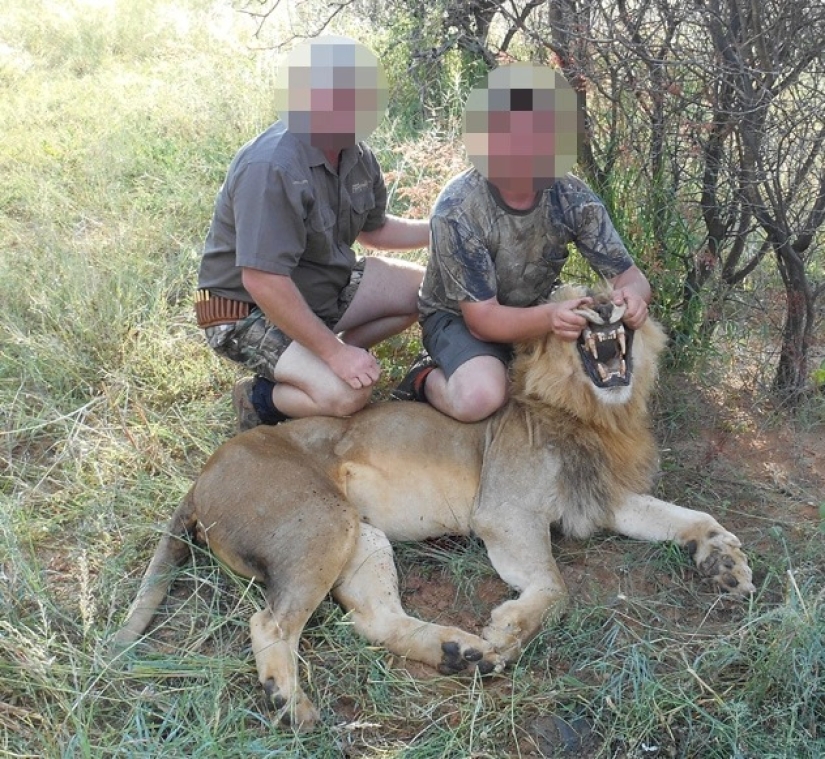 Animal rights advocates refute hunters' claims that part of the funds that customers pay for safaris goes to protect endangered species of animals. Activists believe that hunters just like to kill animals for the thrill.
Animal rights advocates refute hunters' claims that part of the funds that customers pay for safaris goes to protect endangered species of animals. Activists believe that hunters just like to kill animals for the thrill.
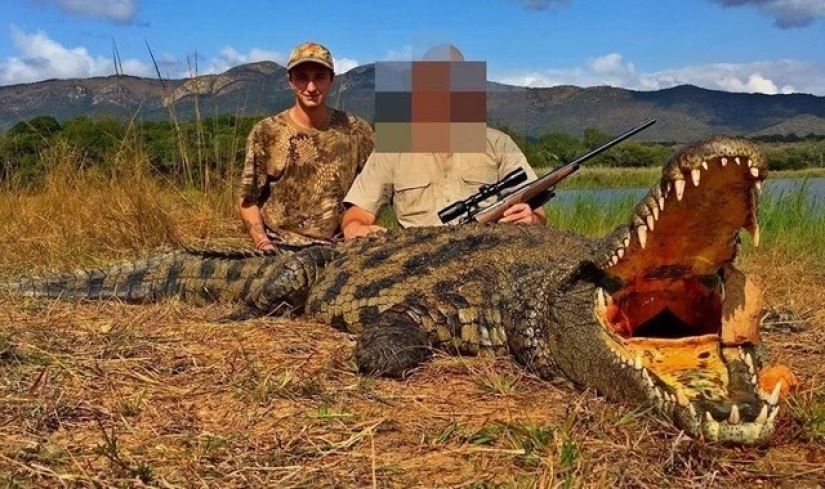 Trophy hunters sometimes shoot at animals that were raised in captivity specifically for this fun. They are tame and do not behave like in the wild. British animal rights activists demand that hunting farms be turned into places for nature tourism.
Trophy hunters sometimes shoot at animals that were raised in captivity specifically for this fun. They are tame and do not behave like in the wild. British animal rights activists demand that hunting farms be turned into places for nature tourism.
Alexandra Tyutchev from Serpukhova loves to go hunting and take pictures with her trophies. However, not all social media users share her love for killing wild animals.
Keywords: Activists | Business | Uk | Money | Law | Protection | Clients | Book | Company | Organizer | Hunting | Hunters | Rights | Government | Exposure | Safari | Trophies | Tour
Post News ArticleRecent articles

It's high time to admit that this whole hipster idea has gone too far. The concept has become so popular that even restaurants have ...

There is a perception that people only use 10% of their brain potential. But the heroes of our review, apparently, found a way to ...
Related articles

Most of us think that the color of the eggshell does not play any role and it is possible not to pay attention. But it's not and ...

American documentary photographer Bruce Davidson came to the UK in 1960 for a couple of months on the assignment of Queen magazine. ...

No wonder long hair has been considered a woman's adornment for many centuries. Girls with luxurious curls attract attention and ...

New Year's is a time to surprise and delight loved ones not only with gifts but also with a unique presentation of the holiday ...